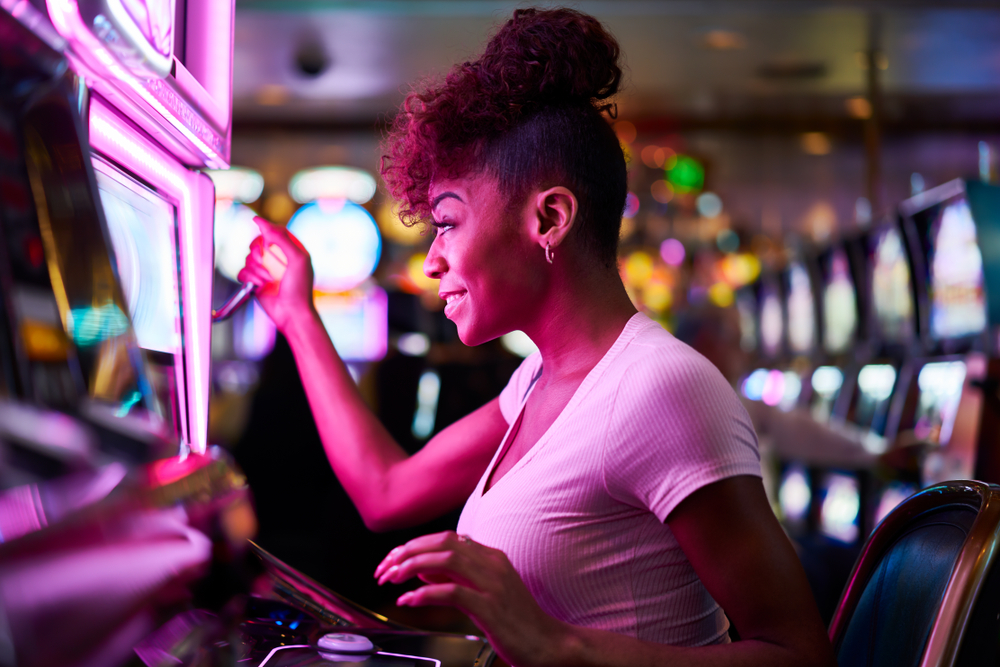Table of Contents (click to expand)
Gambling can provide a sense of achievement, a dopamine hit, when you test your luck and are rewarded for it. Online games are more easily accessible, as all you need is a mobile phone and a Wi-Fi network.
Your favorite poker game may seem harmless when played with friends, but what about when the stakes involve thousands of dollars in cash? 1.9 billion people in the world are gamblers in some form or another. Tthat’s a big number! Despite knowing that gambling is harmful, people engage compulsively and can sometimes even ruin their lives… but why?

Recommended Video for you:
What Makes Gambling Hard To Resist?
Dopamine Rush
Gambling is not always about money. According to Sydney University’s Gambling Treatment and Research Clinic, gambling offers the ‘universal appeal of risking something for a reward.’ This reward is not necessarily monetary. If you’re not gaining money from these games, then what are you gaining?
The reward is a dopamine rush. Dopamine is a neurotransmitter associated with pleasure and reward in the brain. Eating chocolate, going out with a friend, or having sex also give that same dopamine rush.
The lights and sounds of these gaming apps mimic actual gaming environments. This helps the gamblers feel like they’re in a casino, even though they’re eating Doritos with one hand and playing cards on a screen with the other!
Social Appeal
Another factor is social appeal, through sharing your results with friends. This is a typical strategy of online games, even for Candy Crush or Subway Surfer, allowing you to share your results by creating a ‘leaderboard’, giving a false sense of achievement. As a result, you get that feeling of dopamine from being rewarded by social appeal and entertainment.
According to a paper by the Wall Street Journal, it was found that nearly 15 million people in Western countries are addicted to Candy Crush. More surprising than this is that 69% of that hooked population were females. This also busted the myth that males are more prone to gaming addiction. Coming back to the rewards associated with gaming, dopamine is definitely released while playing video games like Candy Crush. Dopamine, a crucial link between reward and addiction, is capable of changing brain chemistry, and seriously affecting our lifestyles!

Why Is Gambling Addictive?
It can be very difficult to recognize when you have crossed the line from entertainment to addiction.
Increased anxiety, the constant need to gamble with money, increasing the amount of money every time you gamble, resorting to illegal means to obtain money for gambling, and hiding from friends and family when you are gambling are all symptoms of gambling addiction.

Gambling affects all age groups, sexes and socio-economic groups. It’s not just a poor man’s problem, resulting from a desire to get rich quick. In the United States, there are two million adults each year who meet the criteria for pathological gambling.
Certain psychological dispositions make people prone to gambling. Low tolerance for boredom, mood disorders, like anxiety and depression, ADHD (Attention deficit hyperactive disorder), childhood trauma and unmet needs can all increase the need for gambling.
Impulsive-Compulsive Spectrum
As a gambling addiction is a behavioral addiction, there are certain behaviors that can lead us to get hooked on gambling. According to research, gamblers are high on compulsivity. Compulsivity is a tendency to engage in certain repetitive behaviors in order to avoid a negative consequence. This act itself can lead you to a negative consequence, namely a gambling addiction. A gambler will want to continuously play in order to make up for their previous losses. Low impulse control leads you to continuously engage in activities that cause harm in the long run.
Beginner’s Luck

Imagine the first time you gambled and won… think back to the euphoria you might have felt. The initial small or large win creates an illusion in thinking that you can control luck better than others, or that you are a “lucky” person. This initial reward in early gambling is known as beginner’s luck, which encourages you to play more and risk more. Beginner’s luck gives the illusion of control in a game that actually has no control at all! It also affects your perception of success towards a particular game.
The Hot-hand Fallacy
The hot-hand fallacy is a belief of predicting future outcomes based on present successes. This means that when a gambler in a casino has won a few consecutive times, it makes one believe that today is their lucky day. They will be willing to raise the stakes as they have already won the last few times… so why not play a bit more?
The term ‘hot-hand’ is used in basketball when one player is performing well (has a hot hand) and everyone should pass the ball to him in order to win. The same thing can’t be said for a gambling hot hand, as that performance is based purely on chance, unlike the skill of a professional athlete.
Availability

The increasingly available opportunities for gambling make it much easier to gamble than it used to be! It’s quite simple! Simply extend your arm, reach for the phone and open the app… pretty easy, right? Nearby casinos, gaming parlors in the malls in your neighborhood, and gaming machines in pubs or restaurants all make it a breeze to gamble. You don’t need to go to Las Vegas anymore!
Internet gambling has become one of the fastest-growing modes of gambling due to its easy availability. Good gaming interfaces, a medium to chat with friends while gaming, and easy payment options, all while sitting in the comfort of your own room, make this a compelling option. Unfortunately, this easy availability due to technology also makes technologically savvy teens more prone to gambling addiction.

Talking about availability, it’s not only Las Vegas in the USA, but also Europe and Asia that have become major gambling hotspots. Europe accounts for 49% of the global market share in gambling. Europe, being more liberal, makes gambling easily available. There is a wide range of casino games such as poker, roulette, and slots that are widely available. Government regulations ensure a 100% safe, secure and fair gambling experience, making it more popular in Europe than in other parts of the world.
Conclusion
Gambling, along with its major popularity, can turn into a major addiction if not monitored properly. Gambling and addiction is a complex problem and psychologists are still trying to understand precisely how addiction works. However, there are various gambling addiction hotlines, gambling therapy, and community and support groups that can help deal with the dark side of gambling.












